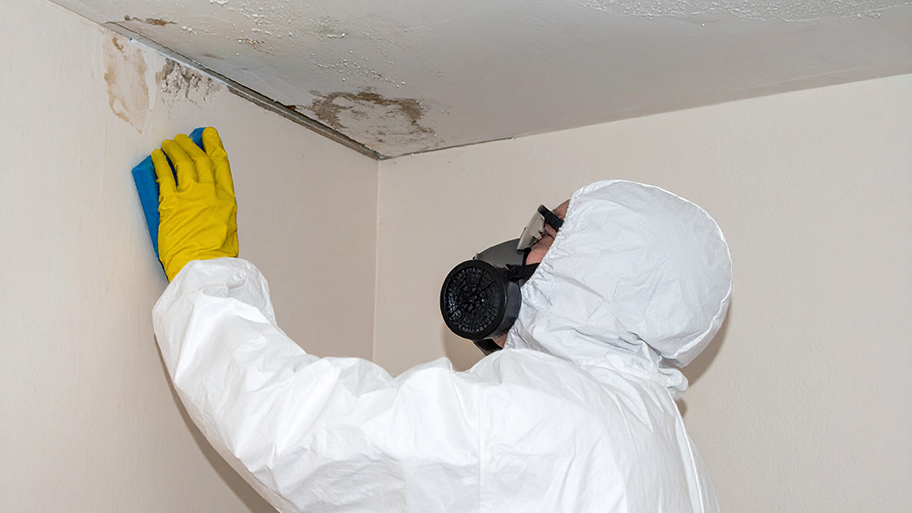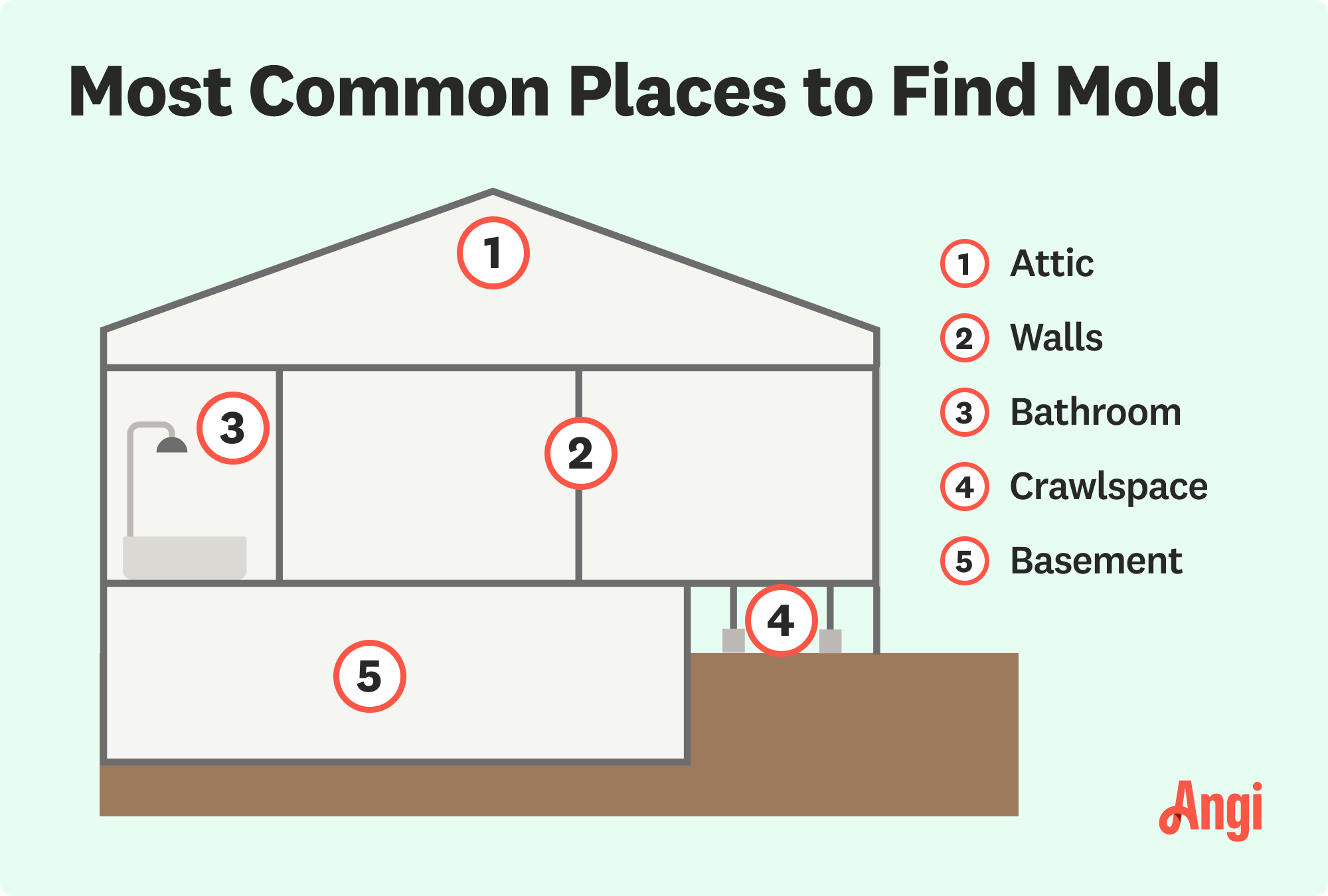
Mold remediation cost can quickly escalate. But if you have mold in your home, the cost for mold remediation is worth it.
Mold isn’t an issue to sleep on—here’s how to hire a mold remediation company fast


Mold testing is when a pro examines your home for air and surface mold.
Mold remediation is the process of removing mold and preventing it from coming back.
Some argue that mold testing is unnecessary, while others say there are benefits.
If cleanliness is next to godliness, then spotting mold in the shower can definitely make you sour. Mold growth can cause severe damage to your home, and in the case of black mold, it can actually be hazardous to your health.
If you believe you have mold problems, you may think you need to get a mold test and then hire someone to do mold remediation. But there are a few things to consider before you hire a pro, including the fact you may not want to hire the same company to do both tasks.
This guide breaks down what mold testing and remediation are, whether you need mold testing at all, and why you should be concerned about a possible conflict of interest.

A top-rated mold inspector near you will examine your house for mold and prepare a report describing where it is, what types of mold you're dealing with, and what should be done about it.
Typically, a pro will take a mold sample from the air or a surface (or both) and inspect that sample. The inspector will use a sport trap for air samples, while they'll take a piece of visible mold or use a swab or tape to look for less visible samples for surface types. Mold inspection costs as little as $150 or as much as $2,700.

Mold remediation includes removing the mold, but it goes a step beyond that by eliminating the source through sanitization, containment, and even demolition in some cases. It's an intricate process meant to remove existing mold and ensure it never comes back. The cost of mold remediation is between $1,100 and $3,300 on average.
If you decide to test for mold, avoid using the same company to remediate your mold problem. Here’s why. A mold testing company that knows you’ll eventually hire it to handle mold remediation will be incentivized to report mold in your home—even if that's not the case. To avoid a conflict of interest, your best bet is to work with a reputable mold remediation company that insists on a report from a third-party tester before they'll do the work.
Another reason to hire separate companies is that mold remediation pros have their own specific training to ensure they can properly treat the mold. Mold remediators often take courses that teach them how to determine the scope of a remediation project, map out a project plan, track the mold conditions before and after remediation, do the work safely, and remove mold from both porous and non-porous surfaces.
To help narrow down the search, be sure to ask the following questions to potential pros and feel confident about who you are hiring.
Are you licensed and insured?
How do you contain the affected area?
Do you accept an inspection from a different company?
How long will I have to be out of my house?
What are common problems I should be aware of when you’re removing mold?
What additional damages or repairs does your company cover?
Can you guarantee that mold is 100% removed from my home?
There’s some debate on whether mold testing is necessary at all. For example, the U.S. Environmental Protection Agency says it’s not necessary to sample or test for mold if it’s already visible. Instead, they advise you to hire a local mold removal company to deal with the problem immediately.
However, mold testing companies argue that not all mold should be treated the same way. A mold assessment can also spot mold in areas the homeowner may not have noticed. Also, a remediation company may ask for an inspection report before starting work. If you decide to go ahead with mold testing, follow these tips for an effective mold inspection.
From average costs to expert advice, get all the answers you need to get your job done.

Mold remediation cost can quickly escalate. But if you have mold in your home, the cost for mold remediation is worth it.

The cost of a mold inspection might seem high, but it’s one of the best investments you can make for your health and home. Read on to learn cost-saving tips.

Got mold on your washing machine? Follow this guide to learn how to clean mold from a washing machine and make your laundry smell fresh.

Knowing when to get a mold inspection is important, especially if you live in a high-humidity area. Here’s how to decide whether or not to call a professional.

Figuring out how to test for mold in your home is important. Mold testing can offer peace of mind and lets you know if it’s time to call a pro. Learn about mold testing processes in this guide.

Where there's moisture, there's likely to be mold. Read on for tips on how to prevent mold growth in all areas of your home.